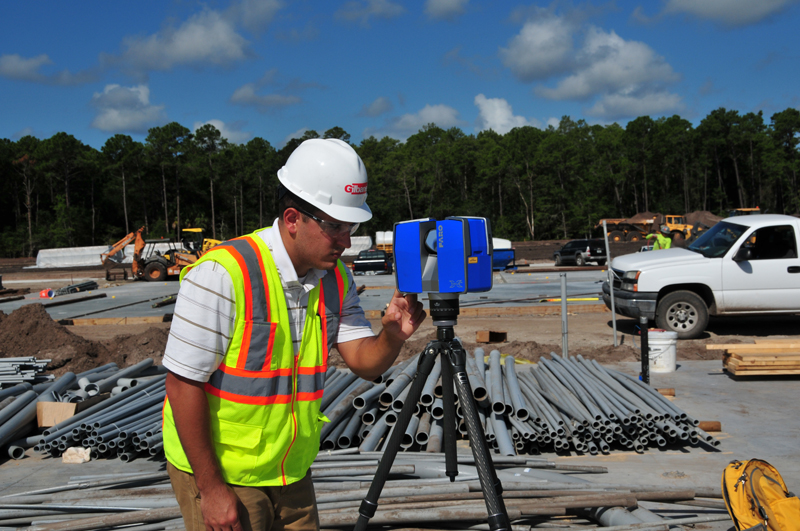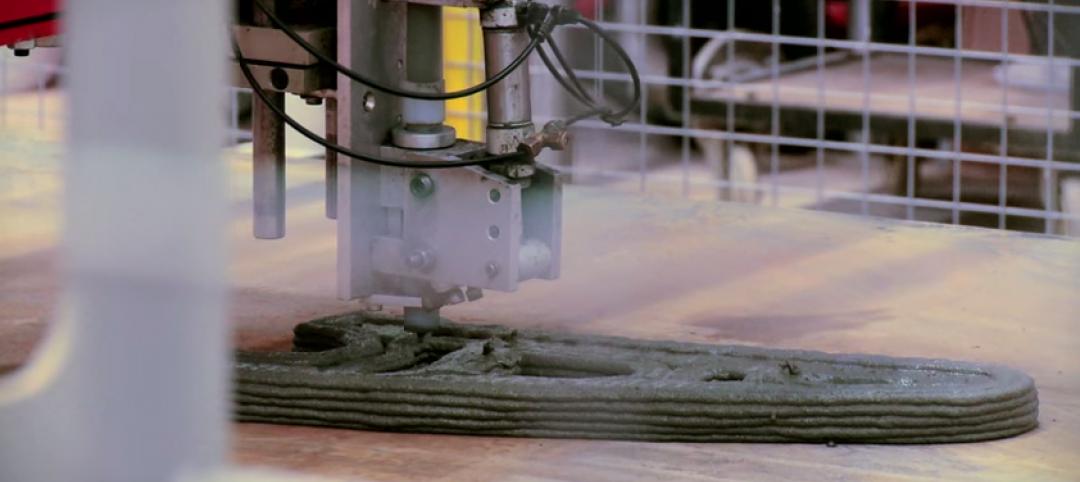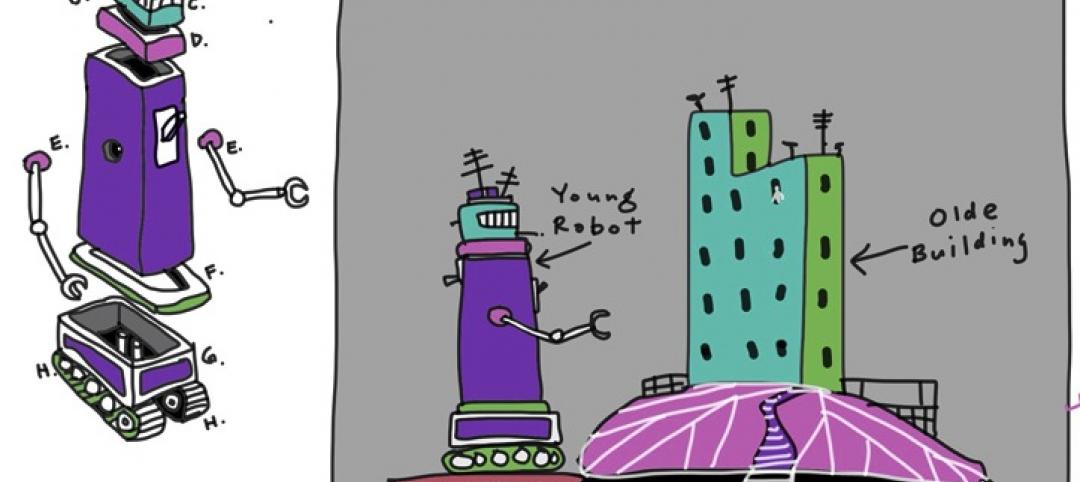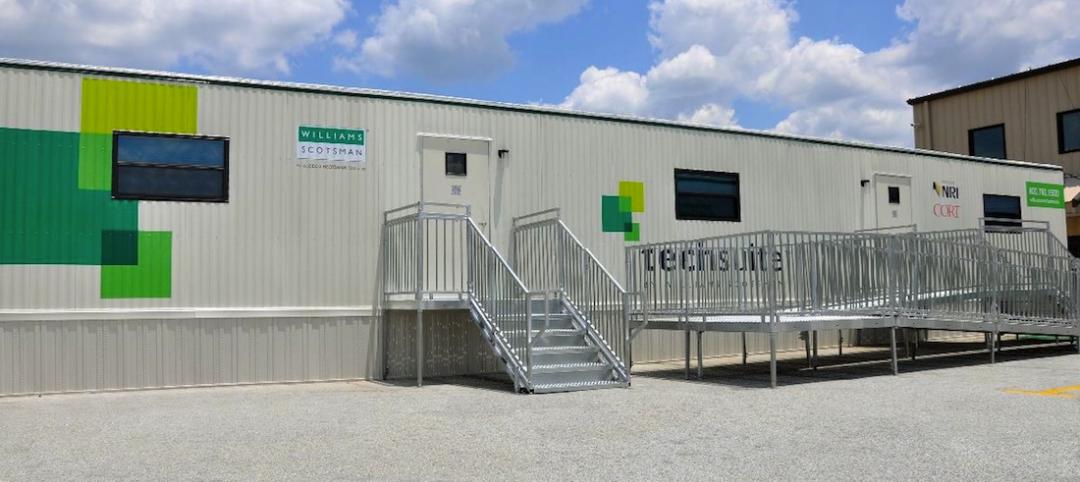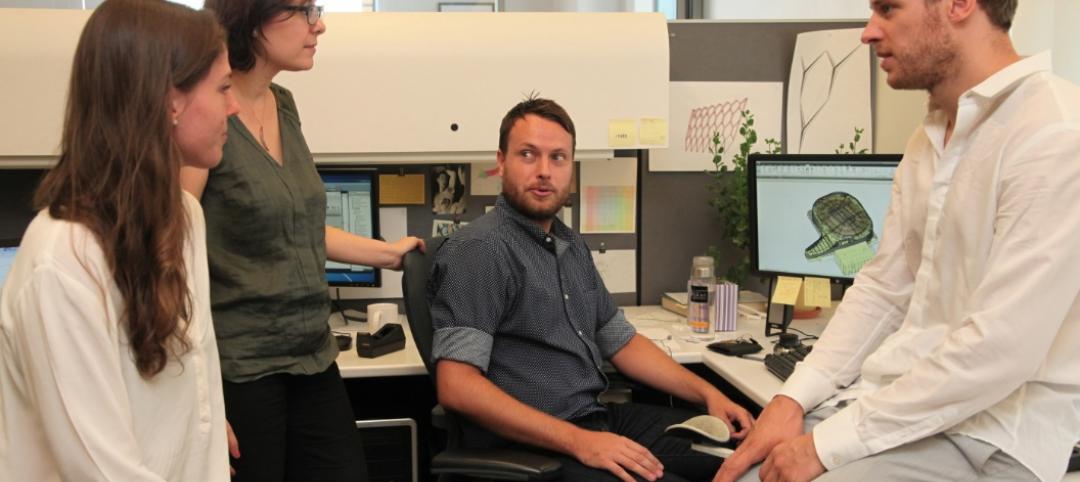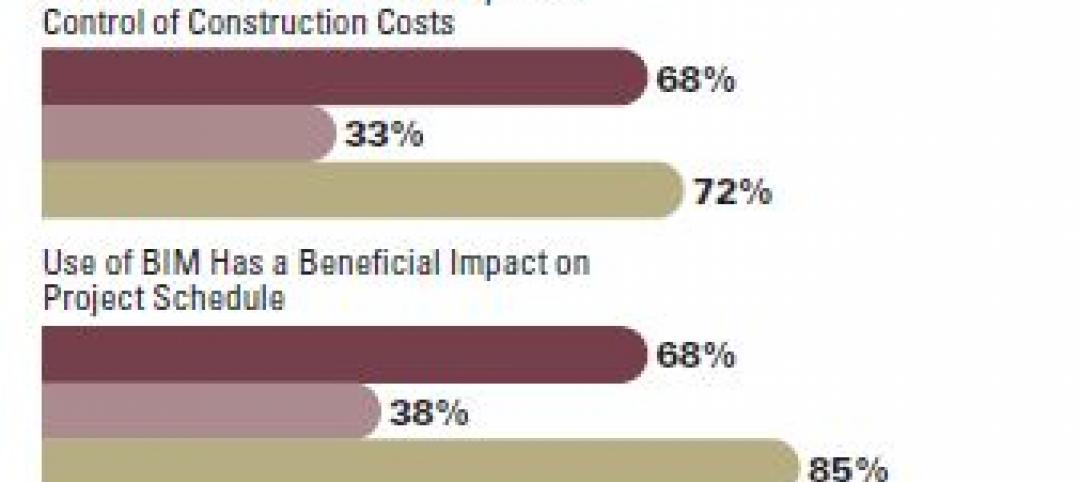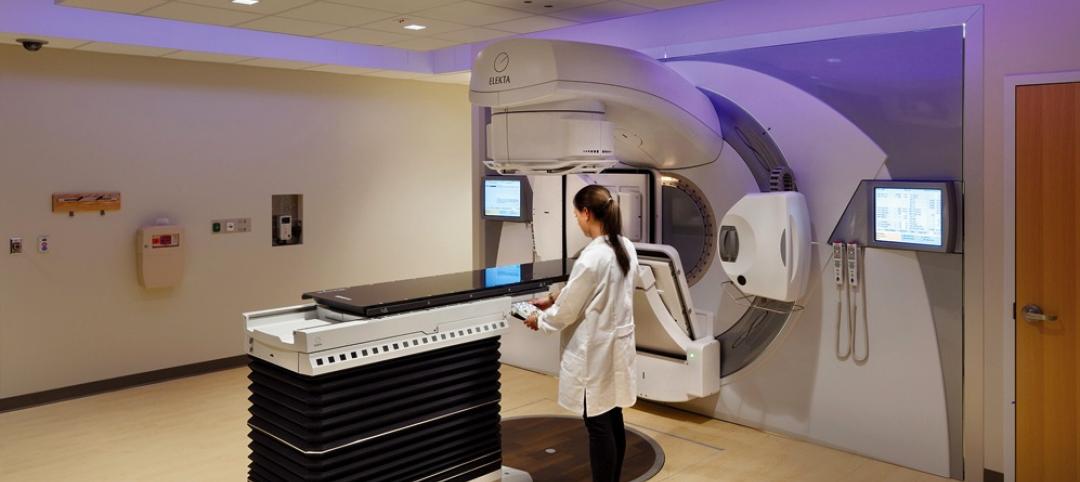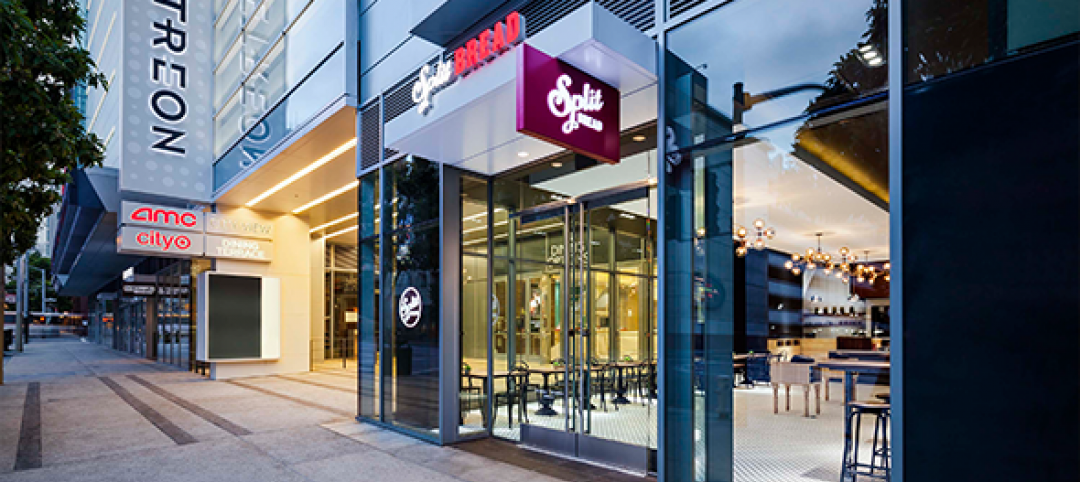Trust but verify. It’s a time-honored treaty enforcement principle. It also works well as a basic mantra for BIM (building information modeling)-based building construction. Just ask the Virtual Design & Construction (VDC) Team at Gilbane, a family-owned and operated construction company. Armed with a phase-shift laser scanner, a Gilbane VDC engineering team recently documented measurement discrepancies on a high-profile building construction project.
Gilbane specializes in the high-wire world of at-risk construction. On occasion, Gilbane is called in to rescue troubled projects. Recently the Gilbane VDC team was summoned to do just that. John Tocci, Jr., Director of the VDC Team sets the stage: “The work involves a new corporate campus, the headquarters of a Fortune 500 company. For various reasons, the previous construction manager was terminated. That happened on a Friday. My team took over the job on Saturday. By Sunday afternoon we were laser scanning part of the project in order to reconcile measurements for Monday morning meetings.”
Trade contractors desperately needed reliable benchmarks to accurately set walls, ducts, pipe, conduit locations, and other assemblies. Then there was the elevator shaft. Laser scanning verified two-inch variations on all sides, with the elevator opening three inches smaller than it should be. There was a new sheriff in town and the trades eventually rallied to the Gilbane VDC team.
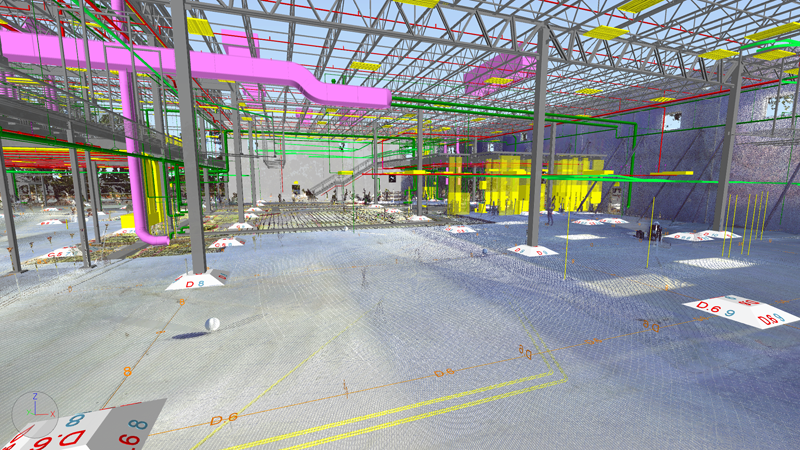
A point cloud of modeled as-built conditions.
“We’ve had a number of cases where the field team, trade contractors, or architects have argued with us about dimensions of existing conditions, Tocci stated. “We’ve been right every time. It underscores the fact that BIM and VDC, no matter how established we think it is, is still an emerging technology.”
As Gilbane discovered the anecdotal side of laser scanning pales in comparison to the dramatic ROI story. “Our first laser scanner paid for itself in the first week of operation,” Tocci reports. “We conservatively calculate we saved about $150,000 on the first project we scanned.” Just one week? Understandably, that kind of near-instant payback may strike some as too good to be true. Believe it, says Tocci. “If anyone wants to reverse engineer the calculations, they’ll quickly see the payback was actually quite larger,” Tocci reports.
“We assigned super-conservative values to all the ordinary construction tasks that scanning eliminates. We factor-in the electrical, mechanical, and plumbing packages on the job. “One week understates it. With scanning, there are no back charges. No finger pointing. No remediation. It’s all because it was measured right the first time,” Tocci says.
Like many risk-adverse businesses, Gilbane takes a careful, deliberate path to integrating new technology into their business. “The Focus3D Laser Scanner changed the industry,” Tocci declares. “When it came out it was three times less expensive than its competitors. Instead of capturing a single point at once, it can capture 978 million points per second. That’s a radically different scenario. It’s so easy for one person to move it around. It captures levels of detail that you didn’t think it could. “It’s an amazing tool. We now verify and find discrepancies that might bite us later on. All that risk goes away. We couldn’t be happier or more impressed,” Tocci says.
More Information:
FARO Technologies
250 Technology Park
Lake Mary, FL 32746
Phone: 407-333-9911 | Fax: 407-333-4181
aec.faro.com
Related Stories
| Dec 1, 2014
Skanska, Foster + Partners team up on development of first commercial 3D concrete printing robot
Skanska will participate in an 18-month program with a consortium of partners to develop a robot capable of printing complex structural components with concrete.
| Nov 26, 2014
How the 'maker culture' brings the power of design to life
Most people affiliate the maker culture with metal working, welding, ceramics, glass blowing, painting, and soldering. But it also includes coding and online content creation, writes Gensler’s Douglas Wittnebel.
Sponsored | | Nov 26, 2014
Virtual reality in 3D models, iPhone thermal imaging: Inside one very cool tech toybox
A little over a year ago, I embarked on a search to find individuals in the AEC space who were putting new hardware to work in the field.
| Nov 18, 2014
New tool helps developers, contractors identify geographic risk for construction
The new interactive tool from Aon Risk Solutions provides real-time updates pertaining to the risk climate of municipalities across the U.S.
Sponsored | | Nov 12, 2014
Williams Scotsman plugs into the jobsite
Many of our customers conduct important business from their temporary modular jobsite office and most require access to technology to get their job done effectively and efficiently. SPONSORED CONTENT
| Nov 5, 2014
AEC firms leverage custom scripts to bridge the ‘BIM language gap'
Without a common language linking BIM/VDC software platforms, firms seek out interoperability solutions to assist with the data transfer between design tools.
| Nov 3, 2014
How facility owners can make the most of BIM
More and more facility owners are seeing the benefits that building information modeling can bring to their projects, according to a new McGraw Hill Construction SmartMarket Report, “The Business Value of BIM for Owners.”
| Oct 15, 2014
Drones may soon assist code inspectors for construction in the UAE
The United Arab Emirates’ Ministry of Labour announced that they will start using drones to help inspectors record when construction sites are breaking laws.
| Oct 13, 2014
Debunking the 5 myths of health data and sustainable design
The path to more extensive use of health data in green building is blocked by certain myths that have to be debunked before such data can be successfully incorporated into the project delivery process.
Sponsored | | Oct 13, 2014
William Duff Architects successfully increases revenue while decreasing accounts receivable workload
William Duff Architects has seen immediate benefits to their business since the implementation of ArchiOffice. Within a couple of months, they increased billable staff utilization and reduced accounts receivable workload. SPONSORED CONTENT


